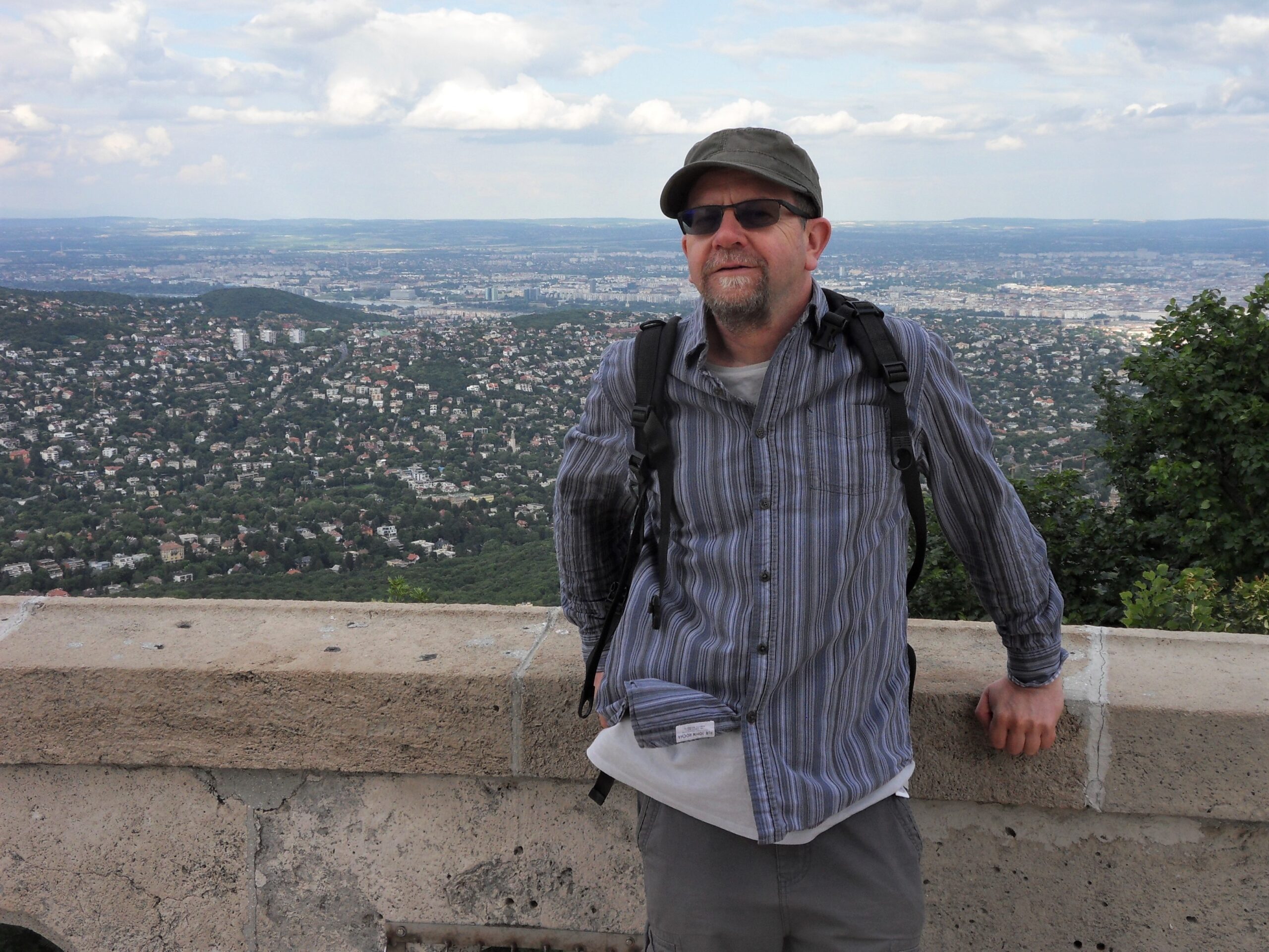“Writing is a solitary experience”

We keep on publishing Q&A with the winners of the 2021 Ruritania prize. The full interviews will feature the issue 8 of Panel (January, 2022), but for now - enjoy the bits of our talk with Paul Harrison, 3rd place winner (“The Marna Hours”).
Paul Harrison was born in Luton in the UK of an Irish mother and English father. He studied Social Sciences at the University of East Anglia and Careers Guidance at the University of Reading. Having spent most of his working life in London and Luton, he now lives with his Hungarian wife in Budapest. He writes about the people and environments around him but recently wrote a long story seen though the eyes of a fish. His collection of short stories 'Snuff and Temperance' was published in 2015.
Q: We know you've been living in Budapest for a few years. How does living abroad, and living in Budapest, affect your writing?
A: Living abroad challenges one's preconceptions and assumptions about life. Writing about new and different, cultural environments helps me make sense of them. Nineteenth and twentieth century history somehow feels closer in Central Europe than in the UK and I find that stimulating, too. Budapest is a contradiction: relaxed and beautiful but often intense, chaotic and occasionally distressing. The Marna Hours is based on my observations from along the Danube.
Q: What do you think is the most important thing (or things) any writer should keep in mind?
A: Writing is a solitary experience but at some point it's important to get feedback. It's not always easy to find a suitable audience or to take criticism. Yet if we don't share our work, we risk writing in a vacuum and failing to understand where improvements are needed.
Q: When did you start writing and why?
A: When I was fifteen I had a nasty dose of chicken pox that isolated me from people for quite a few weeks. It was during the recovery period, on one cold February day, that I first thought about being a writer. Why I write is difficult to answer: but perhaps because it's a constructive form of escapism; hopefully resulting in an outcome also appreciated in the so-called 'real world'. It's definitely an improvement on day dreaming!
Q: What would you like to achieve as a writer? Do you set any goals?
A: To tell the story as well as it can be told. To develop my problem solving skills, so that I can transfer often random and disconnected thoughts into a coherent written text I am happy with; one that will engage and entertain others. I like to write stories that are grounded in social reality and offer meaningful reflection. I have mostly written about 'human microcosms', hoping that they cast some light on broader and deeper issues.
My goal would be to go beyond this and write a novel which describes a bigger stage and major events. To complete a political thriller like 'The Day of the Jackal' or 'Rogue Male' would be wonderful. Until I embark on that adventure, I will focus on collections of shorter fiction.

Leave a Reply